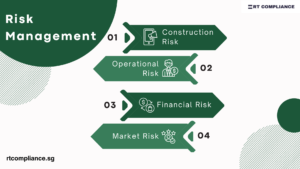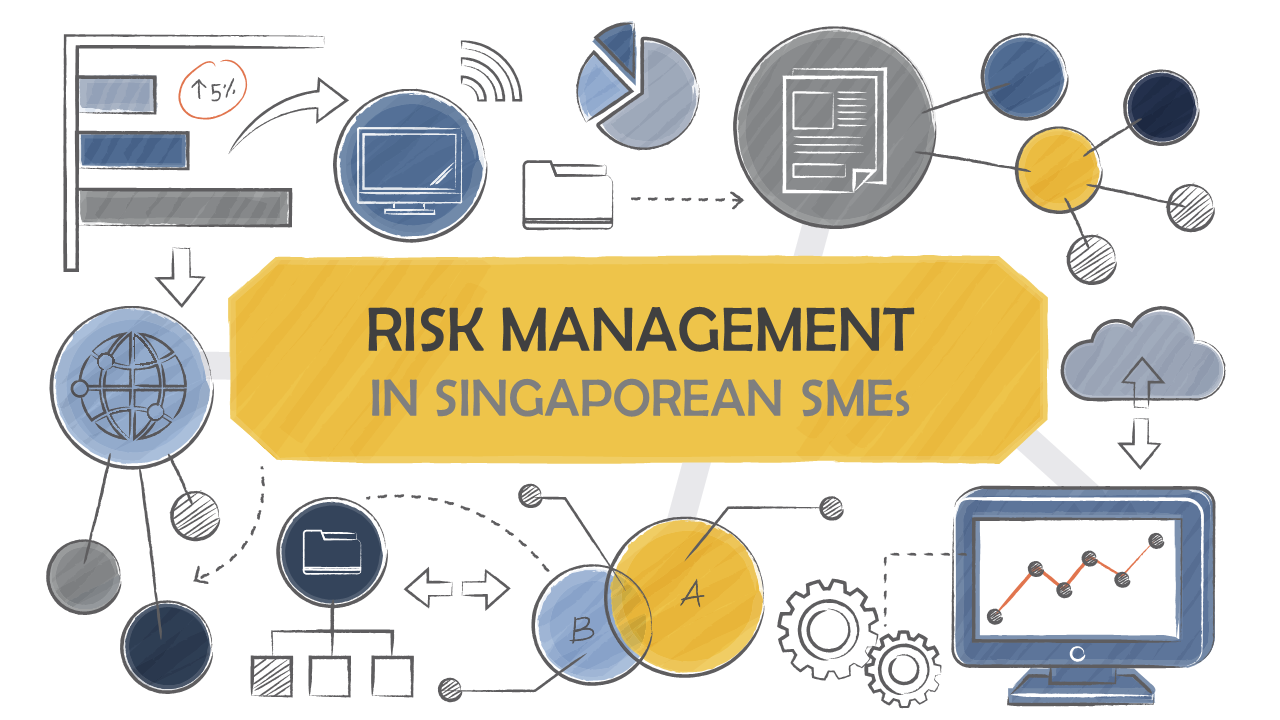In the dynamic landscape of project finance in Singapore, effective risk management, meticulous project finance modeling, and accurate Power Purchase Agreement (PPA) valuation are essential components for successful ventures. This comprehensive guide explores these critical aspects, shedding light on their significance and how companies can navigate the intricate processes involved.
Market Risks in Project Finance Singapore: Managing Volatility in a Dynamic Economy
Singapore’s dynamic market conditions introduce a range of risks that must be carefully managed. Fluctuations in interest rates, currency exchange rates, and commodity prices can significantly impact project finance in Singapore, especially for infrastructure and renewable energy projects. A thorough risk assessment is essential to identify potential market vulnerabilities, allowing stakeholders to develop strategies that enhance risk mitigation in project finance Singapore and protect the project’s financial stability.
Regulatory Compliance in Project Finance Singapore: Key Challenges and Strategies
Navigating Singapore’s complex regulatory landscape is a critical aspect of project finance advisory in Singapore. Compliance with local laws is not only a legal requirement but a core part of risk mitigation in project finance Singapore. Compliance with local laws and regulations is not only a legal requirement but also a fundamental aspect of risk management. Regulatory changes can occur rapidly, and non-compliance may result in severe consequences. Employing a proactive approach to regulatory compliance, including staying abreast of legislative updates and engaging with regulatory bodies, is vital for minimizing risks and ensuring the project’s long-term success.
Environmental and Social Risks
Incorporating environmental and social risk management is increasingly crucial in Singapore’s project finance. With a growing emphasis on sustainability, projects must align with environmental standards and social responsibility practices. Failure to address these concerns can lead to reputational damage and, in some cases, legal repercussions. Implementing comprehensive environmental and social impact assessments and integrating sustainable practices into project planning are essential components of effective risk management.
Supply Chain Disruptions
Global supply chain disruptions can have a cascading effect on project finance, affecting timelines and costs. Singapore’s role as a global business hub makes it susceptible to disruptions in the supply chain. Risk management strategies should include contingency plans for potential supply chain interruptions, ensuring that projects remain resilient even in the face of unforeseen challenges.
Technological Risks in Project Finance Modeling Singapore
As technology continues to evolve, financial modeling for projects in Singapore must account for emerging tech risks. From cybersecurity threats to outdated systems, these challenges must be proactively addressed to strengthen project lifecycle management in Singapore. From cybersecurity threats to the obsolescence of technology, staying ahead of these challenges is vital. Implementing robust cybersecurity measures, conducting regular technology assessments, and integrating flexible technological solutions are essential components of risk management in the digital age.
By addressing these diverse risks comprehensively, stakeholders in Singapore’s project finance landscape can enhance their risk management strategies, thereby fortifying projects against potential challenges and uncertainties. This proactive approach not only safeguards investments but also establishes a foundation for sustainable growth and success in the ever-changing business environment of Singapore.
Comprehensive Construction Cost Analysis in Singapore
In the context of project finance modelling in Singapore, meticulous attention to construction costs is imperative. Given the city-state’s limited land space and high construction expenses, a detailed analysis of construction costs, including materials, labor, and regulatory compliance, is essential. Precise estimation and budgeting during the modeling phase contribute to realistic financial projections, aiding in securing accurate financing and ensuring the project’s financial viability.
Operating Expenses Optimization in Singapore
Effective project finance modeling extends beyond initial construction costs to include a thorough examination of operating expenses. In Singapore’s competitive market, where operational efficiency is key, optimizing ongoing expenses is critical for long-term success. Incorporating factors such as maintenance, utilities, and personnel costs into the financial model allows stakeholders to identify areas for cost optimization, enhancing the project’s profitability and sustainability.
Revenue Projections Amid Market Dynamics in Singapore
Accurate revenue projections are paramount for attracting investors and securing project financing. Singapore’s dynamic market conditions necessitate a nuanced approach to revenue forecasting. Project finance models should account for market trends, demand fluctuations, and potential disruptions. By incorporating these factors, stakeholders can develop resilient revenue projections that stand up to the challenges of the Singaporean business landscape, instilling confidence in investors and financial institutions.
Flexible Financing Structures in Singapore
In the realm of project finance in Singapore, flexibility in financing structures is a strategic advantage. The ability to adapt to changing market conditions and investor preferences requires a dynamic approach to financing. Robust financial models should consider various financing options, such as debt financing, equity financing, or public-private partnerships, allowing stakeholders to tailor the financing structure to the unique needs of the project and optimize the cost of capital.
Scenario Analysis for Informed Decision-Making
Singapore’s project finance landscape is marked by its intricacies and uncertainties. Therefore, incorporating scenario analysis into project finance modeling is a valuable practice. Evaluating the financial implications of different scenarios, such as market fluctuations, regulatory changes, or unexpected events, enables stakeholders to make informed decisions and develop contingency plans. This proactive approach enhances the project’s resilience and positions it for success in a rapidly evolving business environment.
By delving into these additional facets of project finance modeling, stakeholders in Singapore can go beyond traditional financial modeling approaches. This comprehensive perspective not only strengthens the accuracy of financial projections but also equips project teams with the insights needed to navigate the complexities of the Singaporean market and secure sustainable project financing.
Market Dynamics and Renewable Energy Trends
In the Singaporean context, understanding the intricacies of market dynamics is fundamental to accurate PPA valuation. The renewable energy sector is influenced by various factors, including government policies, energy demand patterns, and the emergence of new technologies. Staying abreast of these dynamics ensures that PPA valuations are aligned with the evolving landscape, providing investors with a comprehensive understanding of the project’s position within the market.
Regulatory Landscape and Compliance Considerations
Singapore’s commitment to sustainable development is reflected in its regulatory framework, which is designed to encourage and support renewable energy projects. PPA valuation must intricately consider compliance with these regulations, as non-compliance can result in financial penalties and reputational damage. A thorough understanding of regulatory requirements and changes is vital for accurately assessing the risks and opportunities associated with PPA agreements.
Energy Consumption Patterns and Demand-Side Management
In the valuation of Power Purchase Agreements, a nuanced understanding of energy consumption patterns is essential. Singapore’s drive towards energy efficiency and sustainability influences consumer behavior and demand-side management initiatives. A comprehensive PPA valuation should factor in these patterns, ensuring that the projected energy production aligns with market demand. This alignment not only supports accurate financial forecasting but also enhances the project’s appeal to environmentally conscious investors.
Technological Advancements and Innovation Impact
The renewable energy sector is characterized by rapid technological advancements and innovation. Valuing PPAs in Singapore requires a keen awareness of emerging technologies, their potential impact on energy production costs, and the overall competitiveness of the project. Integrating these considerations into the valuation process ensures that projects remain at the forefront of technological trends, fostering investor confidence and future-proofing against technological obsolescence.
Community and Stakeholder Engagement Impact
Beyond the financial aspects, the success of renewable energy projects in Singapore is often tied to community and stakeholder support. PPA valuations should account for the impact of community engagement initiatives, corporate social responsibility, and stakeholder relations. Social acceptance and positive community relations contribute not only to the project’s overall success but also to its ability to attract investors who prioritize sustainable and socially responsible ventures.
By delving into these additional dimensions of PPA valuation, stakeholders in Singapore’s renewable energy sector can refine their approach to project assessment. A holistic understanding of market dynamics, regulatory nuances, energy consumption patterns, technological trends, and community impact ensures that PPA valuations go beyond mere financial assessments. This comprehensive approach fosters investor confidence, attracts sustainable financing, and positions renewable energy projects for long-term success in the vibrant Singaporean market.
RT Compliance for Project Success
Regulatory Technology (RT) compliance is integral to navigating Singapore’s stringent regulatory framework. Adhering to regulatory requirements ensures legal compliance, mitigates risks, and fosters a positive business environment. RT Compliance tools provide real-time monitoring and reporting, enhancing transparency and reducing the likelihood of regulatory issues. In this context, embracing RT Compliance is not just a legal necessity but a strategic move to build trust and credibility in the Singaporean market.
Expert Project Finance Consulting Services in Singapore: Unlocking Strategic Success
Since project finance in Singapore is very competitive, it is vital to seek expert consultancy for the viability and success of a project. Project finance advisors in Singapore equip stakeholders with knowledge about the industry, skills in modeling and a thorough understanding of the country’s rules.
From the initial analysis stage and considering risks to managing the financial side of a large project, consultants help throughout the work. Advisors make sure that companies follow new trends in the market, changing rules and the latest inventions.
Expert consultants also advise on debt management and encourage stakeholders to follow the most effective strategies for using capital in project finance projects. Thanks to their expertise, we can examine and value Power Purchase Agreement projects in Singapore effectively.
Through financial due diligence and scenario planning, project finance consultants help the organization become stronger, manage varying financial risks and earn investors’ trust. Project finance advisory in Singapore is crucial because it helps companies achieve long-term success.
Conclusion
In conclusion, successful project finance in Singapore requires a multifaceted approach, encompassing effective risk management, precise project finance modeling, and accurate PPA valuation. Embracing tools and technologies that facilitate RT Compliance further solidifies a project’s foundation. As companies strive for success in the competitive Singaporean market, the adoption of these practices will undoubtedly set them apart. For a comprehensive solution that integrates risk management, project finance modeling, and PPA valuation, look no further than RT Compliance – the key to unlocking the full potential of your projects in Singapore.

Read More – Compliance Audit





